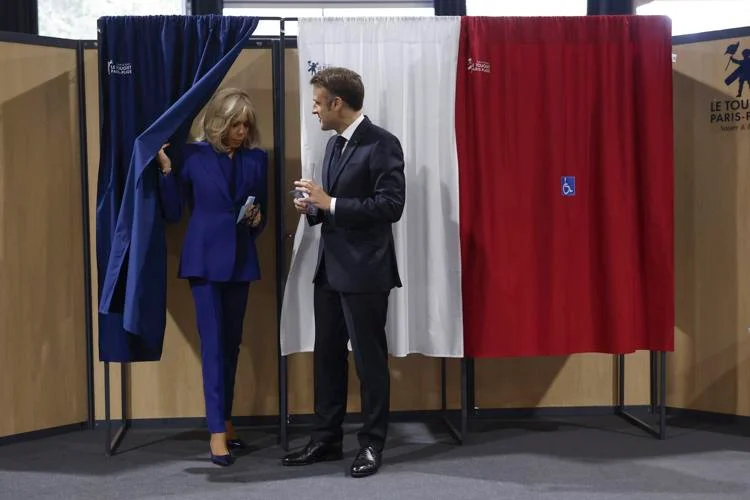France: leftists win most seats in legislative elections, pollsters say
A coalition of the French left that quickly banded together to beat a surging far right in legislative elections won the most seats in parliament but not a majority, according to polling projections Sunday, a stunning outcome that threatens to plunge the country into political and economic turmoil. The projections put President Emmanuel Macron’s centrist […]

france leftists win most seats in legislative elections, pollsters say
A coalition of the French left that quickly banded together to beat a surging far right in legislative elections won the most seats in parliament but not a majority, according to polling projections Sunday, a stunning outcome that threatens to plunge the country into political and economic turmoil.
The projections put President Emmanuel Macron’s centrist alliance in second, no longer in control of parliament, and the bruised far right in third.
With no bloc securing a clear majority, France faces uncertainty that could rattle markets and its economy, the European Union’s second-largest, and cast a shadow of political instability over the Paris Olympics opening in less than three weeks.
Final results are not expected until early Monday in the highly volatile snap election that redrew the political map of France even before votes were cast, galvanizing parties on the left to put differences aside and join together when Macron announced just four weeks ago that he was dissolving parliament and calling the election, in a huge gamble that the president hoped would shore up his centrist alliance.
- Obazee advises lawmakers to address corruption, waste in govt businesses
- State institutions eligible for student loan – NELFUND
It does not appear to have paid off for the deeply unpopular president. Projections forecast that his alliance would no longer be the largest single group in parliament, possibly by a long way.
The National Rally party of Marine Le Pen greatly increased the number of seats it holds but fell far short of its hopes of securing an absolute majority that would have given France its first far-right government since World War II.
The most prominent of the leftist coalition’s leaders, Jean-Luc Mélenchon, urged Macron to invite the New Popular Front coalition to form a government. The alliance, he said, “is ready to govern.”
The projections, if confirmed by official counts, will spell intense uncertainty for a pillar of the European Union, with no clarity about who might become prime minister – and the prospect that Macron will be forced to govern alongside someone opposed to most of his domestic policies. The results will influence the war in Ukraine, global diplomacy and Europe’s economic stability.
The polling projections are based on the actual vote count in select constituencies.
French Prime Minister Gabriel Attal said he would resign but also that he would remain on an interim basis during the Olympics or for as long as needed, given that there could be weeks of negotiations to choose a new premier.
In a statement from his office, Macron indicated that he wouldn’t be rushed into inviting a potential prime minister to form a government. It said he was watching as results came in and would wait for the new National Assembly to take shape before taking “the necessary decisions,” all while respecting “the sovereign choice of the French.”
Macron stunned France, and many in his own government, by dissolving parliament after the far right surged in French voting for the European elections in June. (AP)
